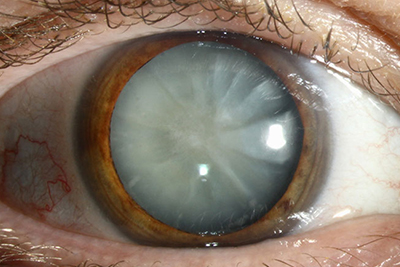
Breaking News
 The Self-Sufficiency Myth No One Talks About
The Self-Sufficiency Myth No One Talks About
 We Investigated The Maui Fires and The Cover-Up is Worse Than We Thought | Redacted
We Investigated The Maui Fires and The Cover-Up is Worse Than We Thought | Redacted
 The Amish Secret to Keeping Pests Out of Your Garden Forever
The Amish Secret to Keeping Pests Out of Your Garden Forever
 Scott Ritter: Full-Scale War as Iran Attacks All U.S. Targets
Scott Ritter: Full-Scale War as Iran Attacks All U.S. Targets
Top Tech News
 US particle accelerators turn nuclear waste into electricity, cut radioactive life by 99.7%
US particle accelerators turn nuclear waste into electricity, cut radioactive life by 99.7%
 Blast Them: A Rutgers Scientist Uses Lasers to Kill Weeds
Blast Them: A Rutgers Scientist Uses Lasers to Kill Weeds
 H100 GPUs that cost $40,000 new are now selling for around $6,000 on eBay, an 85% drop.
H100 GPUs that cost $40,000 new are now selling for around $6,000 on eBay, an 85% drop.
 We finally know exactly why spider silk is stronger than steel.
We finally know exactly why spider silk is stronger than steel.
 She ran out of options at 12. Then her own cells came back to save her.
She ran out of options at 12. Then her own cells came back to save her.
 A cardiovascular revolution is silently unfolding in cardiac intervention labs.
A cardiovascular revolution is silently unfolding in cardiac intervention labs.
 DARPA chooses two to develop insect-size robots for complex jobs like disaster relief...
DARPA chooses two to develop insect-size robots for complex jobs like disaster relief...
 Multimaterial 3D printer builds fully functional electric motor from scratch in hours
Multimaterial 3D printer builds fully functional electric motor from scratch in hours
 WindRunner: The largest cargo aircraft ever to be built, capable of carrying six Chinooks
WindRunner: The largest cargo aircraft ever to be built, capable of carrying six Chinooks
Link Between Cataracts and Vascular Dementia Found -- Study

A recent study that analyzed biobank participants (those who submitted various bodily samples to medical research databases) indicates that those with cataracts often had lower brain matter volume and a higher risk of dementia, particularly vascular dementia (the type stemming from low blood flow to the brain).
"In this cohort study of 304,953 UK Biobank participants, cataracts were associated with lower total gray matter volume, white matter hyperintensities, and increased risk of dementia, especially vascular dementia," the study said in the 'Findings' section of the 'Key Points'. "Mendelian randomization analyses estimated that cataracts were associated with a 92% increase in the odds of vascular dementia risk; although poor visual acuity was associated with an increased risk of dementia, myopia was not associated with dementia in genetic analyses."
Since the eyes are part of the neurological system with the optic nerve connecting into the brain, a link between neurodegenerative disease and ocular degeneration may not sound so far out.
Alzheimers, a type of dementia, is also associated with vision disorders.
"Vision and eye conditions are associated with increased risk for Alzheimer disease and related dementias (ADRDs), but the nature of the association and the underlying biological pathways remain unclear. If causal, vision would be an important modifiable risk factor with viable population-level interventions," the study said in the 'Importance' section of the 'Abstract'.
Another study indicates similar findings.
"Cataracts are associated with the risk of cognitive impairment and dementia, including Alzheimer's disease, and vascular dementia," that study said in the 'Conclusions' section.
A third study shows similar results, although the results indicate that the cataracts may be an associated factor but not a causal one.
"The findings suggest that cataract may be associated with cognitive impairment in older adults. However, the causal relationship between cataract and cognition remains unclear and requires further investigation," that study said in the 'Conclusions' section.
A different study however may indicate a causal link, as removing the cataracts also appears to aid in diminishing dementia risk.
"In this cohort study assessing 3038 adults 65 years of age or older with cataract enrolled in the Adult Changes in Thought study, participants who underwent cataract extraction had lower risk of developing dementia than those who did not have cataract surgery after controlling for numerous additional risks. In comparison, risk of dementia did not differ between participants who did or did not undergo glaucoma surgery, which does not restore vision," the study said in the 'Findings' section of the 'Key Points'.

 RNA Crop Spray: Should We Be Worried?
RNA Crop Spray: Should We Be Worried?

